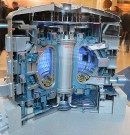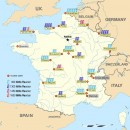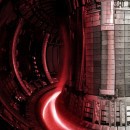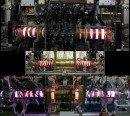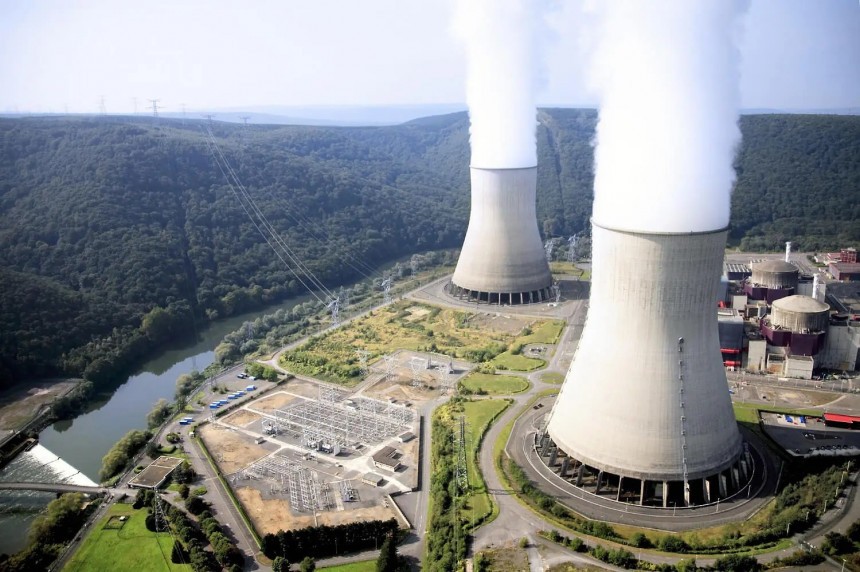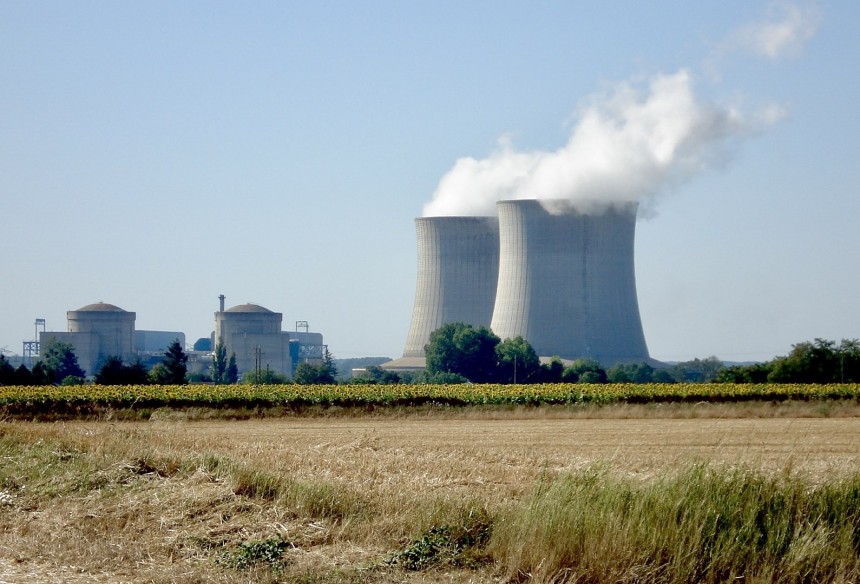Europe is on the brink of an energy deficiency it hasn't seen since the Second World War. But not because of the imminent threat of invasion, as was the case 80 years ago. But rather largely due to a Russian invasion somewhere 2,400 kilometers (1,491 miles) away from Paris, in Eastern Europe.
Russia's objective to starve and freeze the rest of Europe into submission before the end of the 2022 calendar year has largely been a failure. Western and Central Europe's stark defiance against Russia in the face of threats to effectively doom them to brutal winters without Russian oil and gas is remarkable for more than one reason.
But it must be said perhaps one of the biggest contributing parts to Europe's survival comes on the part of France and its industry-leading nuclear power network. The French, with their vast network of nuclear fission reactors, accounts for no less than 70 percent of its domestic energy production through its fleet of 56 nuclear fission reactors.
France is also the home of some of the most cutting-edge research in nuclear fusion technology in all of the European Union. Matching the feats of the U.K-based Joint European Torus (JET) project, the International Thermonuclear Experimental Reactor (ITER) facility in Saint-Paul-lès-Durance, France, houses a Tokamak-style fusion reactor surrounded by jackets of water used to spin turbines.
With scientific-breakeven achieved by the National Ignition Facility in California last year, expect the ITER facility to achieve similar success sometime in the near future. The French nuclear reactor fleet is dotted across the French landscape stretches as far south as Garonne and as far north as the banks of the North Sea.
The impetus for its construction was a uniquely French approach to solving the 1973 OAPEC-driven oil crisis that most famously brought an end to the muscle car era across the pond from the U.S. This national devotion to steeling itself against other forms of energy restrictions in the early 70s paid stark dividends in the 2020s. In a vacuum, France's nuclear exploits might seem like a point of national pride. Something the French can look upon and say with certainty and say no one else in the world even comes close.
But in the context of Russian pipelines that have only recently resumed importing small quantities of natural gas back to Europe again, this French nuclear armada isn't quite cutting the mustard. The reason why, in parts, have nothing at all to do with Ukraine or even Russia.
An atypical stretch of hot summer weather over France back in August prompted French authorities to curb its total nuclear output. Why? Because engineers couldn't guarantee the rivers and seas that French reactors rely on to keep cool could keep up with demand with such high water temperatures. If that's not climate change, in a nutshell, we don't know what is.
As if to make this worse, the timeframe in which Russia greenlit a throttle back of all gas and oil exports to Europe coincided with when nearly half of France's reactors were offline for repairs and scheduled upkeep. All the more bothersome when France's neighboring EU-member nations came knocking when they, too, felt the wrath of overreliance on Putin's gas station.
As is often the case with aging second-generation fusion reactors, wear, tear, and stress fractures in the reactor itself and the surrounding infrastructure is presenting France with a savage dilemma. All as the country's remaining functional reactors pull double or even triple duty to meet their own domestic needs as well as their contractually obligated dealings with nations like the United Kingdom.
In the press, the entity on which the blame is levied largely depends on whether the reporting publication is either pro or anti-nuclear energy. The French anti-nuclear energy movement is as old, prolific, and polarizing as the power plant's themselves. As many as 175,000 French citizens protested in front of ten different nuclear energy facilities between 1975 and 1977.
Today, the descendants of the original anti-nuclear movement in France argue that the government's over-reliance on nuclear energy, in particular, set the stage for an energy crisis few in modern first-world society fully comprehend. On the other side of the aisle, global pro-nuclear advocates subscribe to an equal but opposite belief.
At its core, it's a belief that the biggest inhibitor of nuclear energy isn't meltdowns or radiation but rather good old-fashioned government/corporate negligence. Be it Chornobyl (Chernobyl) or Fukushima Daiichi, the pro-nuclear side argues that both of history's most disastrous reactor meltdowns held paper trails that led not to inherent flaws in the reactor but forces elsewhere.
At the end of the day, the two sides of this decades-long argument will bicker and quip at each other until nuclear fusion actually becomes economically feasible. If one thing can be taken from France's nuclear plight this last year, it's that an over-reliance on any one form of energy can be harmful, just as relying on old-fashioned dino juice can be.
It should be clear that's nothing shy of a holistic approach with elements of several different forms of renewable energy. If the threat of freezing under a Russian petroleum embargo or half of France's fission-reactor fleet being on the fritz all at once is anything to go by. The Russo-Ukrainian war isn't likely to end anytime soon. With that in mind, this is either a death knell for Europe or an opportunity to kick petroleum to the curb. Depending on whether you're a glass half empty vs. half full kind of person.
But it must be said perhaps one of the biggest contributing parts to Europe's survival comes on the part of France and its industry-leading nuclear power network. The French, with their vast network of nuclear fission reactors, accounts for no less than 70 percent of its domestic energy production through its fleet of 56 nuclear fission reactors.
France is also the home of some of the most cutting-edge research in nuclear fusion technology in all of the European Union. Matching the feats of the U.K-based Joint European Torus (JET) project, the International Thermonuclear Experimental Reactor (ITER) facility in Saint-Paul-lès-Durance, France, houses a Tokamak-style fusion reactor surrounded by jackets of water used to spin turbines.
With scientific-breakeven achieved by the National Ignition Facility in California last year, expect the ITER facility to achieve similar success sometime in the near future. The French nuclear reactor fleet is dotted across the French landscape stretches as far south as Garonne and as far north as the banks of the North Sea.
But in the context of Russian pipelines that have only recently resumed importing small quantities of natural gas back to Europe again, this French nuclear armada isn't quite cutting the mustard. The reason why, in parts, have nothing at all to do with Ukraine or even Russia.
An atypical stretch of hot summer weather over France back in August prompted French authorities to curb its total nuclear output. Why? Because engineers couldn't guarantee the rivers and seas that French reactors rely on to keep cool could keep up with demand with such high water temperatures. If that's not climate change, in a nutshell, we don't know what is.
As if to make this worse, the timeframe in which Russia greenlit a throttle back of all gas and oil exports to Europe coincided with when nearly half of France's reactors were offline for repairs and scheduled upkeep. All the more bothersome when France's neighboring EU-member nations came knocking when they, too, felt the wrath of overreliance on Putin's gas station.
In the press, the entity on which the blame is levied largely depends on whether the reporting publication is either pro or anti-nuclear energy. The French anti-nuclear energy movement is as old, prolific, and polarizing as the power plant's themselves. As many as 175,000 French citizens protested in front of ten different nuclear energy facilities between 1975 and 1977.
Today, the descendants of the original anti-nuclear movement in France argue that the government's over-reliance on nuclear energy, in particular, set the stage for an energy crisis few in modern first-world society fully comprehend. On the other side of the aisle, global pro-nuclear advocates subscribe to an equal but opposite belief.
At its core, it's a belief that the biggest inhibitor of nuclear energy isn't meltdowns or radiation but rather good old-fashioned government/corporate negligence. Be it Chornobyl (Chernobyl) or Fukushima Daiichi, the pro-nuclear side argues that both of history's most disastrous reactor meltdowns held paper trails that led not to inherent flaws in the reactor but forces elsewhere.
It should be clear that's nothing shy of a holistic approach with elements of several different forms of renewable energy. If the threat of freezing under a Russian petroleum embargo or half of France's fission-reactor fleet being on the fritz all at once is anything to go by. The Russo-Ukrainian war isn't likely to end anytime soon. With that in mind, this is either a death knell for Europe or an opportunity to kick petroleum to the curb. Depending on whether you're a glass half empty vs. half full kind of person.



